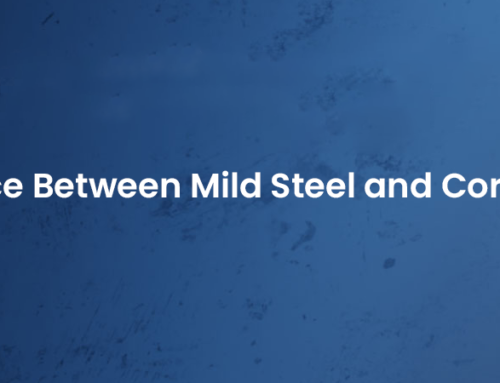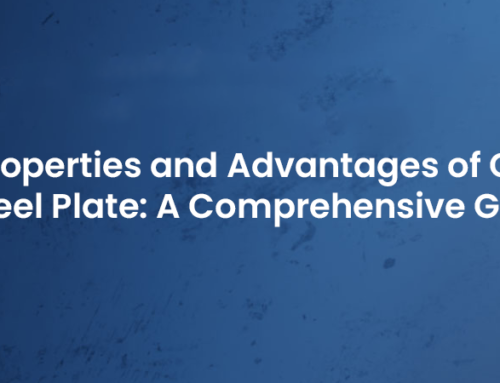What is the Difference Between Corten Steel and Regular Steel?

What is Corten Steel?
What is Regular Steel?
Regular steel, also known as mild steel or carbon steel, is a type of steel that contains primarily iron and carbon, along with other elements in smaller quantities. Regular steel is versatile, easily weldable, and widely used in various industries for structural components, machinery, tools, and everyday objects. It is known for its strength, durability, and affordability, making it a popular choice for a wide range of applications in commercial, industrial, and residential settings.
Difference Between Corten and Regular Steel
Properties
| Property | Corten Steel | Regular Steel |
|---|---|---|
| Corrosion Resistance | Chemically treated for better corrosion resistance | Prone to rust and corrosion when exposed to moisture |
| Impact Resistance | More malleable and resistant to impact damage | Durable but may deform under heavy impact |
| Appearance | Develops a rusted appearance, providing an aged look | Can be coated or finished for desired appearance |
| Strength | High carbon content provides strength and durability | Strong but may require alloying for specific applications |
Combination of Elements
Corten steel contains iron, manganese, carbon, chromium, nickel, silicon, and other elements. This combination contributes to its malleability and resistance to impact damage, especially due to its high carbon content. On the other hand, regular steel is primarily made of iron and carbon, which gives it durability but makes it susceptible to corrosion if not treated properly. Combining ordinary steel with stainless steel can help mitigate corrosion issues.
Corrosion Resistance
Costing
Durability
- Corten steel is highly durable due to its weathering properties and resistance to corrosion over time.
- Regular steel is also durable but may require protective coatings or treatments to enhance its longevity, especially in harsh environments.
Maintenance
- Corten steel requires minimal maintenance as the rust layer acts as a protective barrier, reducing the need for frequent upkeep.
- Regular steel may require regular maintenance, such as painting or coating, to prevent rust and corrosion and maintain its appearance.
Environmental Impact
- Corten steel is considered environmentally friendly as it can be recycled and reused, reducing waste and energy consumption.
- Regular steel is also recyclable but may require more energy-intensive processes for recycling compared to Corten steel.
Temperature Resistance
- Corten steel has excellent temperature resistance, making it suitable for outdoor applications in various climates.
- Regular steel may experience thermal expansion or contraction under extreme temperature conditions, affecting its structural integrity.
Fabrication and Welding:
- Corten steel is weldable and can be fabricated using standard methods, although precautions may be needed due to its higher carbon content.
- Regular steel is easily fabricated and welded using conventional techniques, making it versatile for manufacturing processes.
Longevity and Lifespan
- Corten steel is known for its long lifespan, with some structures lasting for decades without significant deterioration.
- Regular steel can also have a long lifespan with proper maintenance and care, but it may require more frequent inspections and repairs compared to Corten steel.
Applications of Corten & Regular Steel
| Application | Corten Steel | Regular Steel |
|---|---|---|
| Architectural Structures | Used for weathering resistance and aesthetic appeal | Commonly used for structural support and design flexibility |
| Outdoor Sculptures | Ideal for artistic installations with a weathered appearance | Can be used for artistic and functional sculptures |
| Structural Projects | Provides durability and longevity in outdoor environments | Offers strength and versatility in various structural forms |
| Machinery and Equipment | Suitable for impact-resistant components and machinery parts | Widely used in machinery and equipment manufacturing |
| Construction Materials | Used in construction for weather-resistant components | Essential for building construction and infrastructure |
| Automotive and Aerospace Industries | Provides corrosion resistance in automotive and aerospace | Used for parts and components in vehicle and aircraft designs |
Conclusion
The comparison between Corten steel and regular steel underscores key differences that impact their suitability for various applications. Corten steel stands out for its exceptional corrosion resistance, attributed to its weathering properties that develop a protective rust layer over time. This makes Corten steel particularly advantageous for outdoor structures, architectural designs, and artistic installations where durability and aesthetics are critical.
Regular steel, while durable, may require ongoing maintenance such as coatings or treatments to prevent corrosion, especially in harsh environments. However, regular steel’s versatility and affordability make it a common choice across construction, machinery, automotive, and aerospace industries.
Considering environmental impact, Corten steel’s recyclability and minimal maintenance needs contribute to its sustainability, whereas regular steel also offers recyclability but may involve more energy-intensive recycling processes.
Cost considerations vary depending on project specifics, with Corten steel potentially having a higher initial cost but offering long-term benefits in terms of durability and reduced maintenance expenses. Ultimately, the choice between Corten and regular steel hinges on factors such as project requirements, environmental considerations, budget constraints, and desired aesthetics, with each material offering distinct advantages for different applications.







Leave A Comment